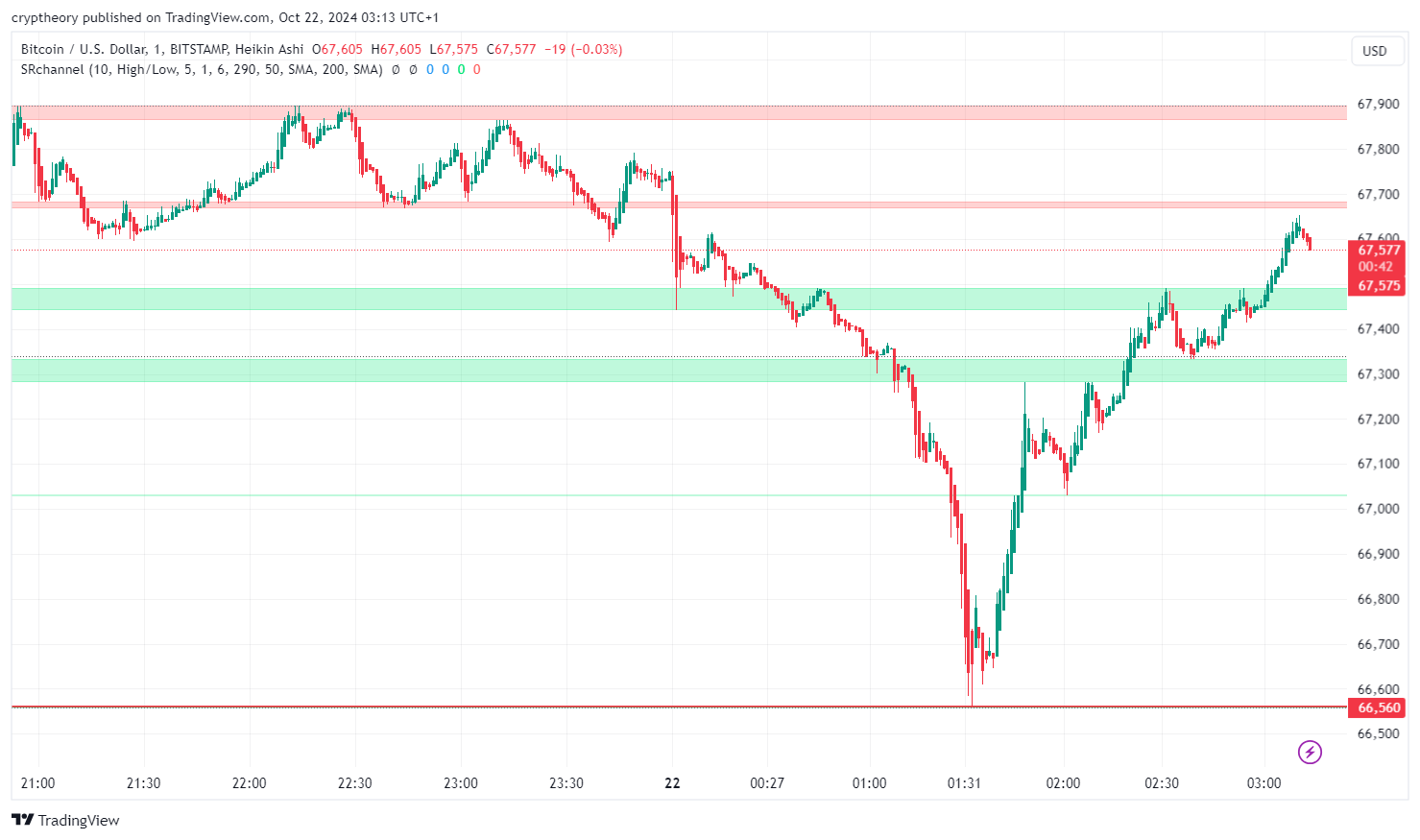At a press conference in London, a man named Stephen Mollah surprised and “irritated” reporters when he claimed, “I am Satoshi Nakamoto, and I created Bitcoin based on blockchain technology.”
Bitcoin enthusiasts quickly dismissed the Briton’s claims after he failed to move the very first Bitcoin (BTC) to prove he is the real Satoshi. Only Satoshi can transfer the Bitcoin mined in the so-called “Genesis Block.”
Stephen Mollah claims the 2009 Satoshi Times newspaper does not exist and nobody has a copy. The evidence in this video proves otherwise
(This is the last post we will make on this nonsense) https://t.co/goqju35cRP pic.twitter.com/ISYJ7vc8N1
— BitMEX Research (@BitMEXResearch) October 31, 2024
Mollah’s claims come just weeks after another failed attempt by an HBO documentary to unveil the mysterious creator of Bitcoin, raising the question of whether it even matters that his true identity remains unknown.
“Bitcoin is agnostic,” digital nomad and crypto expert Courage Kimber told Cryptonews. “I don’t think the founder’s identity is important.”
Kimber noted that Bitcoin has proven itself as both a currency and a network to be “tested and reliable.” She highlighted that in its 15 years of existence, Bitcoin has only experienced two outages—a track record that few competing blockchains can match.
“I think [Bitcoin] is better off with the founder’s identity unknown,” Kimber added, explaining, “When a project is too closely tied to a founder, it usually fails because it can’t exist without the personality or a big figure associated with it.”
Satoshi Nakamoto disappeared in 2010, when he suddenly stopped posting on an online Cypherpunk forum. The last known email from the Bitcoin creator to the forum was in April 2011, in which he wrote, “I’m moving on to other things.”
Satoshi’s Anonymity Truly Makes Bitcoin Decentralized
Since then, numerous names have been floated as potential Satoshi candidates, including Nick Szabo, Hal Finney, and Dorian Nakamoto, but none have been confirmed.
In HBO filmmaker Cullen Hoback’s latest search for the elusive crypto founder, Bitcoin Core developer Peter Todd was identified as Satoshi.
Todd himself was shocked by Hoback’s conclusions. In the documentary titled “Money Electric: The Bitcoin Mystery”, the Canadian denied being Nakamoto, calling the claim “ridiculous.”
He stated that people trying to uncover Satoshi’s identity are “distracted by nonsense.”
Similarly, self-proclaimed BTC creator Mollah faced heavy criticism. Researchers at the crypto exchange BitMEX dismissed the claims as “nonsense.”
In an interview with Crypheory, Yuriy Brisov, a partner at the UK crypto law firm Digital & Analogue Partners, explained that one of the main reasons Satoshi wanted to remain anonymous was to protect Bitcoin’s decentralized nature.
Brisov stated that by distancing himself from Bitcoin, Nakamoto ensured that “there would be no central figure at the heart” of the blockchain, preventing any single person from having “too much power” over Bitcoin’s development.
“This lack of a specific owner or leader allowed Bitcoin to grow organically and be shaped by the community’s hands, rather than under the influence or vision of any one individual,” Brisov said, adding:
“Moreover, [Satoshi’s anonymity] protects the creator from possible legal, financial, or personal liability. It allows the community to focus on the technology itself, rather than on the person or people behind it.”
Decentralization is a core principle of Bitcoin. Brisov added that Nakamoto’s anonymity helps avoid government control and shields him from harassment by those who may seek access to his BTC.
Satoshi Nakamoto holds 1.1 million bitcoins, currently valued at $84 billion, making him one of the world’s wealthiest individuals. Todd mentioned that the unwanted attention from the HBO film has made him fear for his life.
Institutional Adoption Reduces Concerns About Satoshi’s Identity
According to some analysts, the acceptance of Bitcoin by established financial institutions like BlackRock and Franklin Templeton suggests that concerns over Satoshi’s identity are less significant today.
In the past, there were fears that revealing Satoshi’s identity and him moving funds from his wallet could trigger a panic sell-off, potentially leading to Bitcoin’s downfall.
However, as traditional institutions accumulate large positions in exchange-traded Bitcoin funds (ETFs), these concerns are starting to fade.
According to Sosovalue data, investors have poured $24.12 billion into ETFs since they were launched in January. Bloomberg’s senior ETF analyst, Eric Balchunas, estimates that at the current pace, these eleven products “will surpass Satoshi’s holdings.”
Experts believe that Wall Street’s influence on the Bitcoin markets, driven by growing institutional participation, could overshadow any concerns about possible actions by a revealed Nakamoto. Digital nomad Kimber told:
“My faith in Bitcoin is based on the fact that no central entity can influence Bitcoin’s adoption or fundamental design. I don’t think speculation about Nakamoto’s true identity will affect Bitcoin investors, as most of them know the motto ‘don’t trust, verify’ before investing.”
‘It’s Good That Satoshi Remains Unknown’
People like Mollah, the obscure British businessman who claimed to be Satoshi without evidence, are playing a “dangerous” game, according to Brisov, the crypto lawyer from Digital & Analogue Partners.
“Firstly, those who make false claims could be charged with fraud, especially if they attempt to benefit from such claims,” he said. “Secondly, it could be seen as contempt of court or perjury.”
Australian computer scientist Craig Wright has claimed for years to be the creator of Bitcoin. However, after failing to back up his claims with evidence, the High Court in London ruled in March that Wright was not Satoshi.
Brisov noted that, in practice, attempts to reveal Nakamoto’s true identity “are nothing more than efforts to profit from the mystery.”
According to the BBC, Mollah requested £500 [~$649] from journalists to attend his press conference. The reporters refused to pay but were still admitted to the event.
It’s ironic that someone claiming to be Satoshi, with $84 billion worth of Bitcoin, would try to charge a dozen journalists a few bucks.
The HBO documentary reportedly also made a lot of money, as people subscribed en masse to watch the highly publicized film.
Bitcoin’s appeal doesn’t rely on knowing who Satoshi is but rather on the decentralization, security, and transparency it offers. And for die-hard crypto advocates like Blockstream CEO Adam Back, himself a Satoshi suspect, Nakamoto must remain in the shadows for Bitcoin’s sake.
“No one knows who Satoshi is, and that’s a good thing,” Back wrote on X (Twitter) as Hoback’s documentary dominated social media discussions.
- Could Solana Hit $500 by the End of 2024? Here’s Why It’s Not Just a Crypto Fantasy! - November 19, 2024
- Bitcoin Surge: Analyst Says Halving Supply Shock Outweighs Trump’s Election Victory! - November 14, 2024
- Why the Hunt for Satoshi Nakamoto Isn’t Helpful for Bitcoin - November 12, 2024























